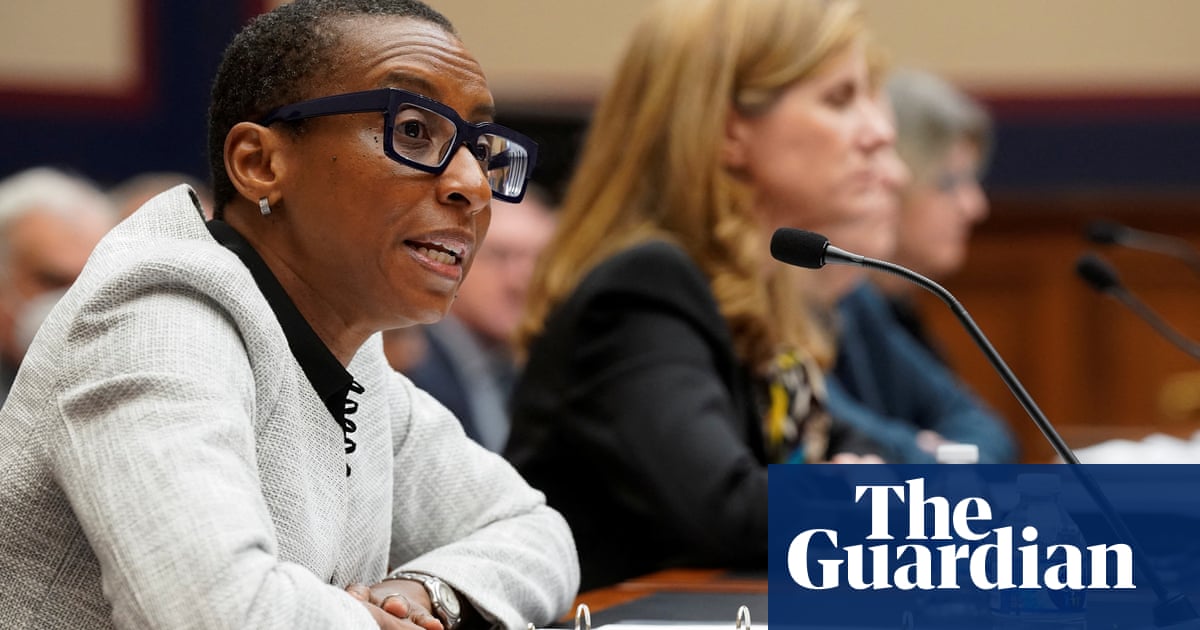
Universities in England needing bailouts to survive the impact of Covid-19 will have to “demonstrate their commitment” to free speech as well as closing courses with low graduate pay, Gavin Williamson has announced.
The education secretary laid out stringent conditions for universities facing bankruptcy to receive government loans – including the scrapping of “low-value” courses with high dropout rates or whose graduates did not often end up in skilled employment – and said institutions would close or be taken over if they failed to make a strong business case.
“We need a future [higher education] sector which delivers the skills the country needs: universities should ensure courses are consistently high quality and focus more heavily upon subjects which deliver strong graduate employment outcomes in areas of economic and societal importance, such as Stem, nursing and teaching,” Williamson said.
It has been forecast that 10 universities in England face long-term financial struggle following the lockdown. University leaders are anxiously looking towards how many students arrive on campus in autumn.
The Department for Education’s guidance said it would “require assurance that providers are fully complying with their legal duties to secure freedom of speech” before granting emergency loans.
However, the University and College Union (UCU) accused the government of using the pandemic to enforce political objectives taken from the Conservative party’s election manifesto.
“Higher education is one of the few things we remain a world leader in, yet the government is prepared to exploit universities’ financial difficulties to impose evidence-free ideology and reduce the diversity and strength in depth of university courses and research,” said Jo Grady, UCU’s general secretary.
Kate Green, the shadow education secretary, said: “Instead of using this crisis as an excuse to centralise control over universities and force through cuts to courses, the government should pledge that no university will be allowed to go bust.”
The DfE’s guidance states that emergency loans would only be considered if there was “a clear economic and value-for-money case” and that closure would “cause significant harm to the national or local economy or society”.
While protecting the welfare of current students was listed as a top priority, the DfE said “not all providers will be prevented from exiting the market. Any intervention should be a last-resort measure after all other finance options have been exhausted.”
Graham Galbraith, the vice-chancellor of the University of Portsmouth, said the sector would be pleased with any promise of government support but that it needed to define how to assess the value of undergraduate courses.
“It will be vital for government to benchmark ‘strong learner outcomes’ data to work out the distance travelled by a university’s students. How much a student improves at university is a proper value-for-money measure. Without this, government risks throwing taxpayers’ money at coasting universities who recruit high-attaining students who would have succeeded anyway,” Galbraith said.
Emergency loans would be approved by the education secretary after a recommendation from a newly established higher education restructuring board and an independent business review carried out by DfE-appointed advisers.
The review would examine “refocusing provision on high-quality courses” and whether other courses could instead be offered at sub-degree level by further education (FE) colleges.
Advisers would look at savings in administration costs – “including but not limited to senior executive pay” – as well as asset sales and the closure of unviable campuses. It would also consider “options for merger, consolidation and service sharing, including with FE”.
Universities UK, which lobbies on behalf of higher education institutions, said: “We would encourage government to be more ambitious, to go beyond a small number of universities in financial need, and to use this as an opportunity to help universities to undertake innovative changes to maximise their contributions to the economy and meet the needs of students and employers,” said Alistair Jarvis, UUK’s chief executive.
Williamson said an institution’s free speech policies would be included in any decision. Student unions would be required to focus on “serving the needs of the wider student population rather than subsidising niche activism and campaigns,” he said.
Hillary Gyebi-Ababio, the National Union of Students’ vice-president for higher education, said: “It is students’ unions and universities who have stepped up to support their local communities during the pandemic and filled the gaps in support left by government just like our precious public services.”












